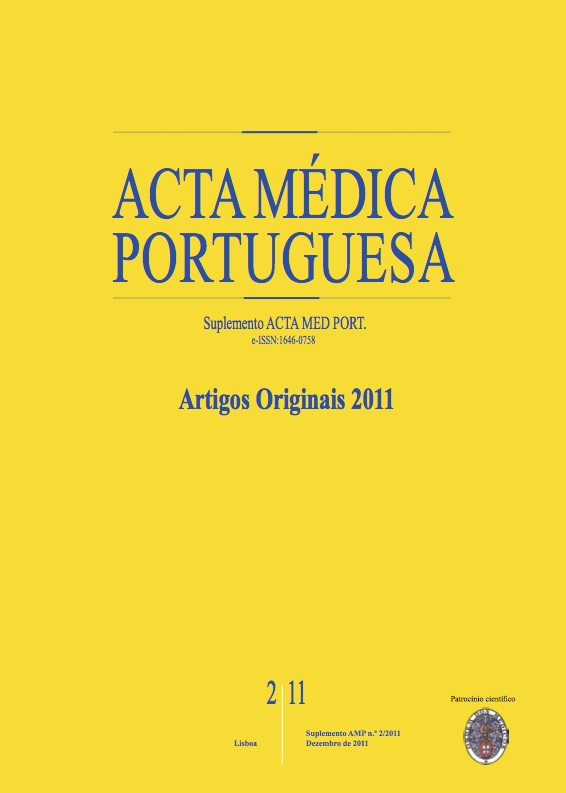Factores preditivos de depressão pós-acidente vascular cerebral: estudo retrospectivo numa unidade de reabilitação.
DOI:
https://doi.org/10.20344/amp.1512Resumo
Stroke can significantly limit functionality, a fact often not correlated with the neurological deficit itself. The psychiatric complications have been identified as key factors in post-stroke. Depression has shown to be the most common complication and the one associated with a worse prognosis. There is still uncertainty as to its etiology and risk factors. In the most recent systematic review, some factors are recognized: stroke severity, the degree of disability and cognitive impairment. Establishment of other factors wasn't possible due to methodological issues. Thus, it is urgent to define new factors that facilitate a timely diagnosis, which may lessen the negative effects on the rehabilitation process.To determine the incidence of post-stroke depression (PSD) and to study variables described in the literature as possible predictors of PSD: sex, age, type of stroke, laterality, vascular territory and presence of aphasia. The study of the type of aphasia was defined as secondary endpoint.Retrospective longitudinal study involving all patients admitted to a PMR ward, with the diagnosis of stroke de novo, between 1/1/2009 and 31/12/2009. Demographic and clinical data was collected from 74 patients' files. Exclusion criteria: 'previous stroke', 'prior psychiatric illness with mood disturbance' and 'antidepressant medication at the time of stroke'. SPSS 11.5 was used for statistical analysis.The incidence of PSD was 44.6%. Amongst possible predictor factors tested, only the presence of aphasia showed a significant association with depression (p = 0.02). There was no relation with the type of aphasia. The other predictors tested showed no statistically significant correlation. There seems to be a relationship between male sex and the PSD (p = 0.07), which did not reach significance with this sample size (n).This study establishes aphasia as a predictive factor of PSD and excludes the remaining variables. The high incidence of PSD in this particular population agrees with the existing studies, but a different study is needed to justify the value found. Further studies are needed, not only to increase knowledge of risk factors for PSD, as to improve the outcomes of rehabilitation programs.Downloads
Downloads
Como Citar
Edição
Secção
Licença
Todos os artigos publicados na AMP são de acesso aberto e cumprem os requisitos das agências de financiamento ou instituições académicas. Relativamente à utilização por terceiros a AMP rege-se pelos termos da licença Creative Commons ‘Atribuição – Uso Não-Comercial – (CC-BY-NC)’.
É da responsabilidade do autor obter permissão para reproduzir figuras, tabelas, etc., de outras publicações. Após a aceitação de um artigo, os autores serão convidados a preencher uma “Declaração de Responsabilidade Autoral e Partilha de Direitos de Autor “(http://www.actamedicaportuguesa.com/info/AMP-NormasPublicacao.pdf) e a “Declaração de Potenciais Conflitos de Interesse” (http://www.icmje.org/conflicts-of-interest) do ICMJE. Será enviado um e-mail ao autor correspondente, confirmando a receção do manuscrito.
Após a publicação, os autores ficam autorizados a disponibilizar os seus artigos em repositórios das suas instituições de origem, desde que mencionem sempre onde foram publicados e de acordo com a licença Creative Commons









